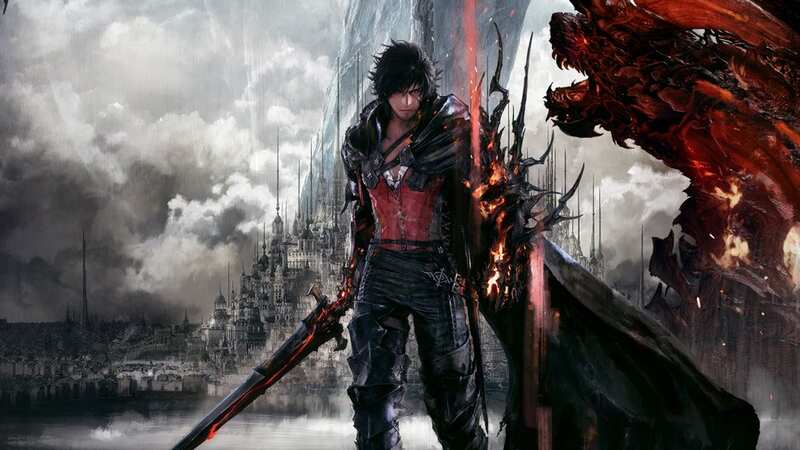Third-party Xbox and PS5 exclusives are important in an era of acquisitions

Recent investigations into Xbox’s Activision-Blizzard deal have called the necessity of third-party exclusives into question, but they’re an important part in giving consoles their identity.
Almost for as long as games consoles have existed, so too have exclusives that you can only play on one specific platform. These days we tend to think of AAA made by first-party game developers themselves – your God of War Ragnaroks and Halos of the world, for example – as the only exclusive games that matter. But those made by third-party independent publishers are just as important too; not only in helping players decide what console to buy or play on but to also keep the industry competitive.
Microsoft seemingly knows this more than anyone, spending endless dollars to acquire developers and publishers with the intention of bolstering its Xbox Series X|S platform with new and exclusive titles to play. The idea is that by investing in creative talent capable of making games that players are unable to enjoy anywhere else, consumers will choose Microsoft’s console platform over any other and in the process subscribe to Xbox Game Pass (because it’s cheaper than buying AAA games piecemeal).
Xbox can spend all the money in the world acquiring companies like Bethesda, Double Fine and now most infamously Activision Blizzard, but getting games from these companies to launch takes time. Microsoft is very much playing the long game. Only this year – as teased during the Xbox Developer Direct presentation in January – does it look like the fruits of Microsoft’s money and efforts will come to fruition in the form of first-party exclusives like Hi-Fi Rush, Redfall and Starfield finally releasing.
PlayStation, meanwhile, has mostly had a different strategy all this time. Rather than making quick acquisitions of interesting talent that might not always make sense, it's built a strong base of respectable first-party studios over two decades – mostly from scratch. Developers like Naughty Dog (makers of Uncharted, The Last of Us) and Sony Santa Monica (God of War) are revered today, but that’s only because these studios have been given enough time and financial investment to properly grow and hone their craft. As a result, a lot of PlayStation studios now make some of the best AAA games in the world.
 PSVR 2 is already losing to the Meta Quest 2 in the VR headset battle
PSVR 2 is already losing to the Meta Quest 2 in the VR headset battle
First-party exclusive games are incredibly important, but the same can also be said for third-party exclusives. Games that Xbox, PlayStation or sometimes even Nintendo pay independent publishers to either make for them or release on its console for a limited amount of time.
The most recent example of this being the upcoming Final Fantasy 16, which is excusive to the PS5 for a minimum of six months. PlayStation previously did something similar with two Bethesda games – Deathloop and Ghostwire: Tokyo – before Microsoft’s acquisition could take full effect.
Third strike
Third-party exclusives, though often nowhere near as risky in pumping your own money into a AAA title, is still usually the result of a strong partnership or shared vision. When you consider PlayStation’s longstanding history with the Final Fantasy series dating all the way back to PS1, then, it makes much more sense for publisher Square Enix to team up with PlayStation rather than Xbox. And while it's true that the franchise’s history dates back further with Nintendo, but Final Fantasy 16 is much too graphically intensive to run on Nintendo Switch natively.
The truth is that both Xbox and PlayStation recognise the value in third-party exclusives; the problem is that the battle lines between how these exclusive or time-exclusive partnerships work are never clearly drawn and are usually closely held secrets. US regulatory authorities seem to think so too, as evident in a filed order made by the FTC’s chief administrative law judge, which quashed Sony’s request to see “every content licensing agreement [Microsoft has] entered into with any third-party publisher between January 1, 2012 and present.”
The FTC has since requested PlayStation to be more transparent about its third-party exclusivity agreements as a result, but only those dated from January 1, 2019 to the present day. It’s easy to see why the FTC would think this would place both Xbox and PlayStation on equal footing, but all this information becoming public (or third-party exclusives going the way of the dodo at all) would make competition between the two far less interesting and the industry more predictable. We, as players, thrive off surprises, and exclusives of any kind play an important part in that.
Third-party developers are essential to filling in the myriad release calendar gaps first-party AAA studios simply aren’t capable of doing. Microsoft, by hoovering up a whole bunch and taking them off the table from platforms like Nintendo and PlayStation, isn’t better for gamers. Its recent moves making select future Bethesda games exclusive prove that. And that’s despite claims by Phil Spencer that Call of Duty will come to other platforms for 10 years.
That’s why, as annoying as it can sometimes be for players that don’t own a particular console, I hope that the value of third-party exclusives is never called into doubt and that they continue to stick around for the foreseeable future. Knowing a third-party AAA game is only available to enjoy on one platform makes it far more attractive to play there, and just two companies owning all of the game development talent in the world would make the industry far more flavourless and homogeneous.
Read more similar news:
Comments:
comments powered by Disqus

































